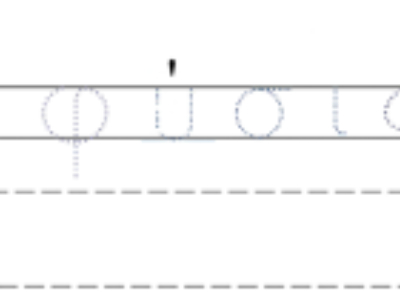I live in the bustling heart of Greece, Athens, where opportunities to immerse myself in nature are few. However, whenever I escape to an island or retreat to a mountain, I find myself captivated by the harmonious chaos of the natural world—a beautiful and enduring mystery, but a profound revelation, too. So, this week, I decided to explore a concept deeply rooted in our understanding of the environment and which we often miss when living in big cities: Φύσις.
The word Φύσις, (mean. Nature, pron. Phýsis), from which we derive the English term “physics,” originates from the Greek verb φύειν (pronounced phýin), meaning to grow. It’s a concept deeply embedded in the way ancient Greeks understood the world around them- not just as a physical space but as a living, breathing entity that evolves and changes.
This concept extends to several English terms, like for instance: physical which relates to the material aspects of nature, physician which emphasizes the care of the physical body, and physiology which explores the functions of living systems.
In ancient philosophy, Φύσις was the fundamental principle of change and development in the universe. Heraclitus famously said, “You cannot step into the same river twice,” highlighting that nature is in a constant state of flux, always renewing and never remaining static.
In mythology, Φύσις embodies the endless energy and vitality of the natural world. In myths, she is like Gaia (Γαῖα, pron. Yéa), the Earth Mother. But, while Gaia is the body and substance of Earth, Physis is its breath and spirit, the unseen force that animates and perpetuates growth and life.
Today we visualize Φύσις when, for example, we go to the forest, or when we observe the seasonal transformation of a meadow, watching it burst into color in spring and slowly golden in autumn, each phase revealing nature's continuous renewal and resilience, reminding us to live in harmony with the natural rhythm of life rather than against it.
So next time you step out into nature - hopefully much more often than I do - close your eyes, listen to the whispers of the earth, feel the growth around you, and let your senses soak in the timeless dance of Φύσις. In this way, you will connect not just with the world around you, but also with the ancient wisdom that reminds us of our place within this timeless, beautiful flux.
Questions
1. How do you experience Φύσις in your everyday life? Can you identify moments where you feel particularly connected to the natural world?
2. Considering the statement You cannot step into the same river twice, how do you interpret the idea of constant change in your own life and the environment around you?
Activities
1. Nature Journaling: Start a nature journal to document your observations and thoughts about the natural world. Note the changes you see in a particular place over time, such as a park, garden, or natural trail. This can help illustrate the concept of Φύσις through personal experience.
2. Photography Project: Create a photo essay capturing the essence of Φύσις. Focus on capturing images that show growth, decay, and transformation in nature. This could be seasonal changes, plant growth, or even weather patterns.
Write it out
Practice your ancient Greek with this printable worksheet:








